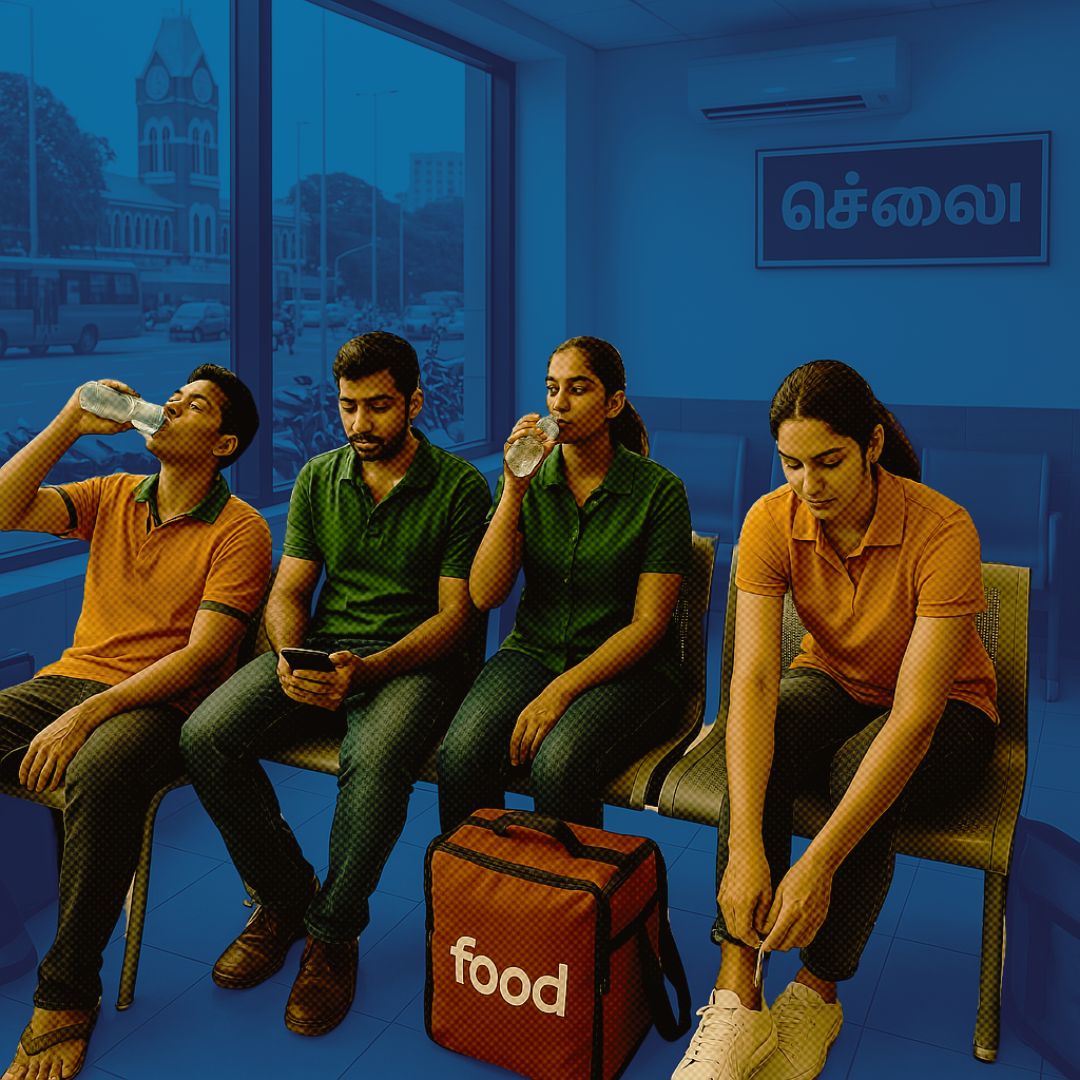The Greater Chennai Corporation (GCC) is set to construct air-conditioned rest areas for gig workers involved in food and e-commerce deliveries across key residential localities in Chennai, including Anna Nagar, Nungambakkam, Royapettah, Mylapore, and T Nagar.
Inspired by Dubai’s model, these rest areas will provide essential amenities such as toilets, seating, parking spaces, and charging stations to enhance safety and comfort. The initiative particularly aims to support women workers, who currently make up only 10% of the gig workforce and face challenges like lack of access to toilets and safety concerns.
A Step Towards Worker Welfare
With the rise of online food delivery and e-commerce services in Chennai, gig workers often endure extreme weather conditions like scorching heat or heavy rains while waiting on busy roads. The GCC’s plan to build air-conditioned rest areas addresses these hardships by offering clean toilets, safe storage spaces, seating areas, and charging facilities for mobile devices.
A GCC official stated that these spaces would provide much-needed security for women workers, encouraging their participation in the gig economy. Women currently constitute only 10% of the workforce due to safety concerns and lack of basic facilities.
Challenges in Implementation
While this initiative promises significant benefits for gig workers and urban safety, finding suitable locations in Chennai’s congested urban landscape is a major challenge. Engineers from GCC are working on designs tailored to local needs while addressing space constraints.
Busy roads like Anna Salai and Khadar Nawaz Khan Road are hotspots where gig workers often gather, causing traffic congestion. Identifying accessible spots in such areas remains a critical hurdle for the project’s success.
Inspiration from Dubai’s Model
The GCC’s plan draws inspiration from Dubai’s successful air-conditioned rest area model for delivery workers. In Dubai, these designated spaces have improved worker satisfaction while reducing traffic congestion and safety risks.
Chennai aims to replicate this success by adapting the design to local urban conditions. Officials believe this initiative could serve as a blueprint for other Indian cities facing similar challenges.
The Logical Indian’s Perspective
The GCC’s initiative is a commendable step towards recognising the needs of gig workers who play an essential role in urban economies. By providing safe and hygienic facilities, this project reflects empathy and inclusivity for all workers.
As Chennai sets an example for other cities, it raises important questions: How can we ensure the effective implementation of such initiatives? What other measures can be taken to improve working conditions for gig workers? We encourage our readers to share their thoughts on fostering better working environments across India.












